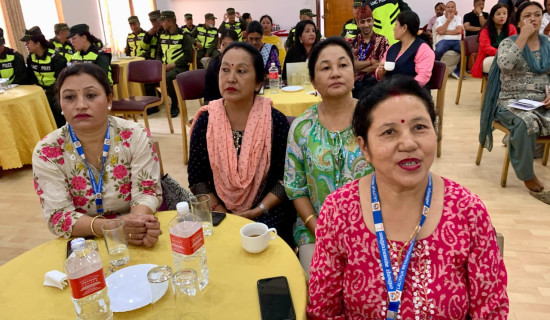- Saturday, 30 August 2025
Constitution For Stability
As the main law of the land, constitution is a collection of fundamental principles, doctrines and conventions that serve as the legal basis to govern the nation. It embodies the political ethos and ethical norms that are supposed to be internalised by the state’s key organs such as government, parliament, bureaucracy and universities as well as the political parties, civic organisations and business entities. Nonetheless, every constitution reflects the changing aspirations of the people and given socio-economic realities. Most constitutions have come into existence following the sweeping political changes that not only put a new set of politicians at the helm but also the new ideologies, principles and norms that guide the society. There are also cases where the statutes are framed to address the growing public dissent without the change of regime. Such charters provide limited rights to the people by keeping the major power structures intact.
For instance, The Nepal Government Act 1948 fits to such category of constitution. It was Nepal’s first statute prepared during prime minister Padma Shumsher. Its experiment met with a fierce opposition from the intolerant yet powerful Rana cliques unwilling to give any right to the people. Though it ensured a few rights to the people, it failed. Three years later, the Rana regime came to an end, ushering in democracy. Nepal Interim Government Act 1951 was formulated following the 1951 democratic movement that overthrew the Rana Oligarchy and established democracy for the first time in the country. Nepal has so far witnessed seven constitutions, implying that the journey towards a stable and inclusive democracy has been arduous. Every political upheaval led to the writing of new charter to meet people's demand for a happy, prosperous and dignified life.
The present constitution, written by the elected representatives of the Constituent Assembly in 2015, is considered most progressive, comprehensive, inclusive and democratic charter the country has ever got. It transformed the nation into democratic, federal, secular and republican state. Its preamble states that it has internalised "the people's sovereign right and right to autonomy and self-rule, while maintaining freedom, sovereignty, territorial integrity, national unity, independence and dignity of Nepal. It seeks to fulfil the mass aspirations for sustainable peace, good governance, development and prosperity. The socialism-oriented statute has incorporated the basic elements of modern democratic system such as people's competitive multiparty democratic system of governance, civil liberties, fundamental rights, human rights, adult franchise, periodic elections, full freedom of the press, and independent, impartial and competent judiciary and concept of the rule of law.
Recently, the nation marked the 9th anniversary of the promulgation of the constitution with a variety of functions. During this period, it experimented new governance structures – federal, provincial and local, which aim to ensure effective and efficient service delivery so that the people feel the power that has been decentralised and their concerns well addressed. The present coalition government of CPN-UML and Nepali Congress is committed to abide by the constitutional norms and values. It has sought to make timely amendments to the statute with a view to carry out structural reforms in electoral system and provincial arrangement. In his address to a programme organised to mark the Constitution Day recently, Prime Minister KP Sharma Oli said that the statute would be amended with the consensus of all parties as far as possible for political stability, which would be undoubtedly in the interest of the people and the nation. In the changing scenario, the provinces and local units should be self-reliant financially to realise the inclusive federalism and prosperity.

















